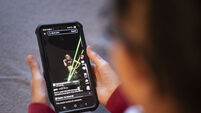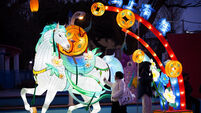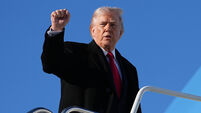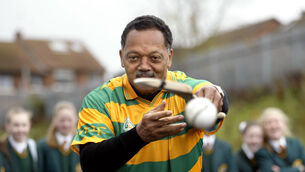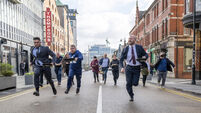G7 vow to stand up to Russian aggression

At the start of the two-day summit of the world’s leading industrial nations, host Angela Merkel greeted Obama in the idyllic Alpine town of Kruen under blue skies, surrounded by locals in traditional dress, drinking beer and eating pretzels.
Merkel is hoping to secure commitments from her G7 guests to tackle global warming to build momentum in the run-up to a major UN climate summit in Paris in December. The German agenda also foresees talks on global health issues, from ebola to antibiotics and tropical diseases.







